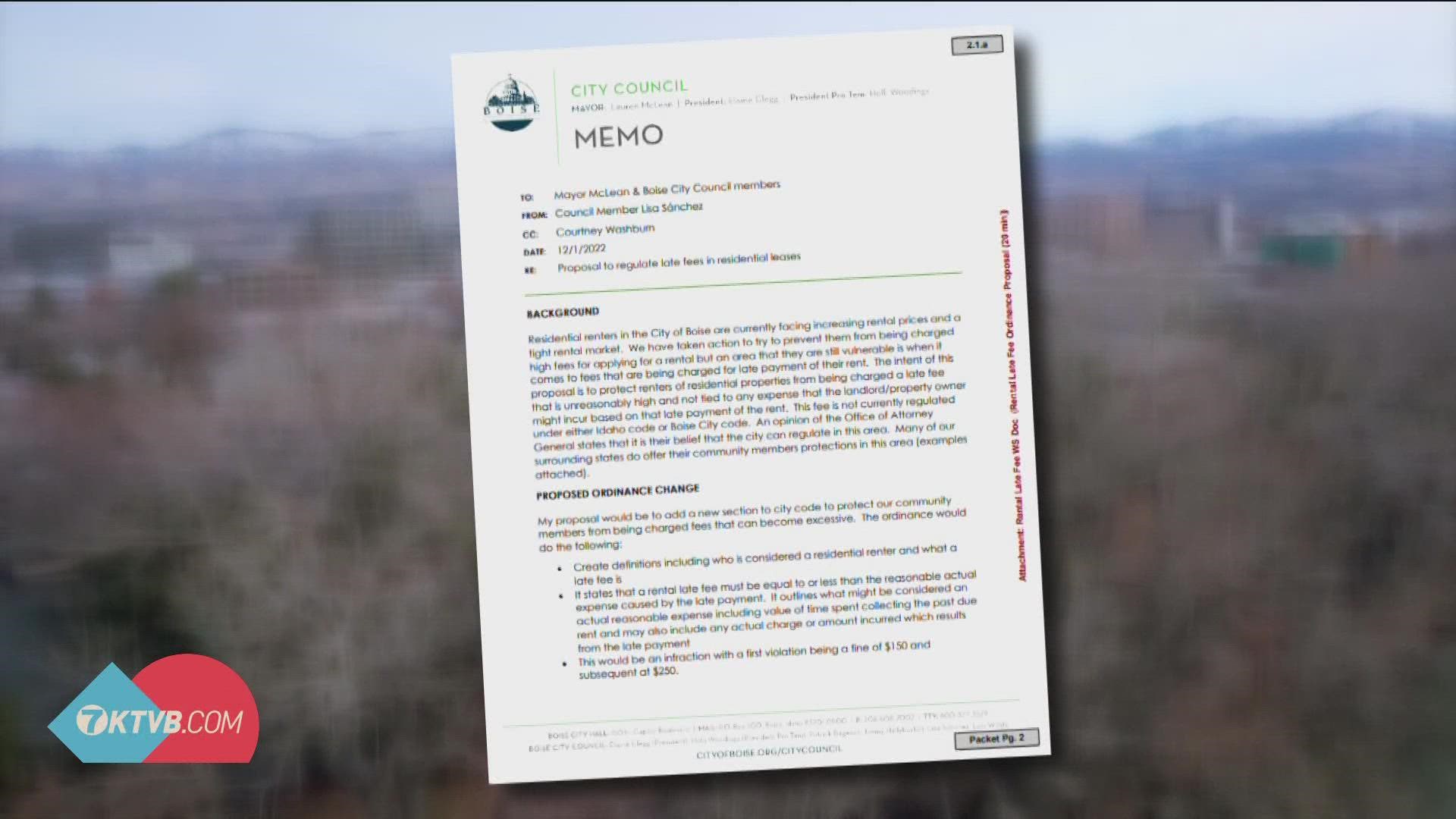BOISE, Idaho — The Boise City Council considered an ordinance change to regulate late rent penalty fees in their Tuesday work session before the regularly scheduled council meeting.
The state of Idaho has no laws regulating the maximum penalty a landlord can charge a tenant who fails to pay rent on time. Neighboring states - including Washington, Oregon, Utah, and Nevada - all have some form of regulation.
The proposed ordinance aims to prevent landlords from profiting off late fees. A late fee, according to this ordinance, should only exist for the purposes of earning back any money lost in the process of collecting the rent payment due.
"No property manager or owner of property," the draft ordinance reads, "shall charge a late rental fee unless the fee is equal to or less than the reasonable actual expense caused by the late payment."
The draft ordinance aims to penalize any landlords violating the ordinance $150 on first offense, and $250 for any subsequent violation.
"I'm not aware of one lease I have ever looked at that didn't have a late fee penalty for paying rent late. It's a very standard industry practice," CATCH Executive Director Stephanie Day said.
CATCH is a housing first non-profit that aims to end homelessness in the Treasure Valley. Currently, 1,400 people in Ada County are experiencing homelessness.
CATCH does not have a problem with late fees; however, some landlords they work with charge fees that Day considers to be excessive. CATCH is currently working with a landlord who is charging a client $250 in late fees, according to Day.
"If it's a late fee because it costs you half-an-hour to write a notice to them - you could just charge for that half an hour. And a lot of landlords do that. And a lot of landlords practice ethically," Day said "But there are a lot of landlords out there that are just trying to make money, and they charge tenant a lot more than they need to charge them."
Large late fees further dig people into a financial hole who are already struggling, according to Day. When people graduate from CATCH's program, they often are paying 50-60% of their income toward rent; general guidance is to pay no more than 30%, but that is no longer realistic, according to Day.
Anyone paying more than 30% of their income toward rent is considered financially burdened by their rent bill, according to the United States Department of Housing and Urban Development. Rent burdened individuals are people most at risk of missing payments.
"I think [this proposed ordinance] is a good idea, and it's a step in the right direction," Day said. "It's really just targeting landlords that would be taking advantage of the situation."
Join 'The 208' conversation:
- Text us at (208) 321-5614
- E-mail us at the208@ktvb.com
- Join our The 208 Facebook group: https://www.facebook.com/groups/the208KTVB/
- Follow us on Twitter: @the208KTVB or tweet #the208 and #SoIdaho
- Follow us on Instagram: @the208KTVB
- Bookmark our landing page: /the-208
- Still reading this list? We're on YouTube, too:

